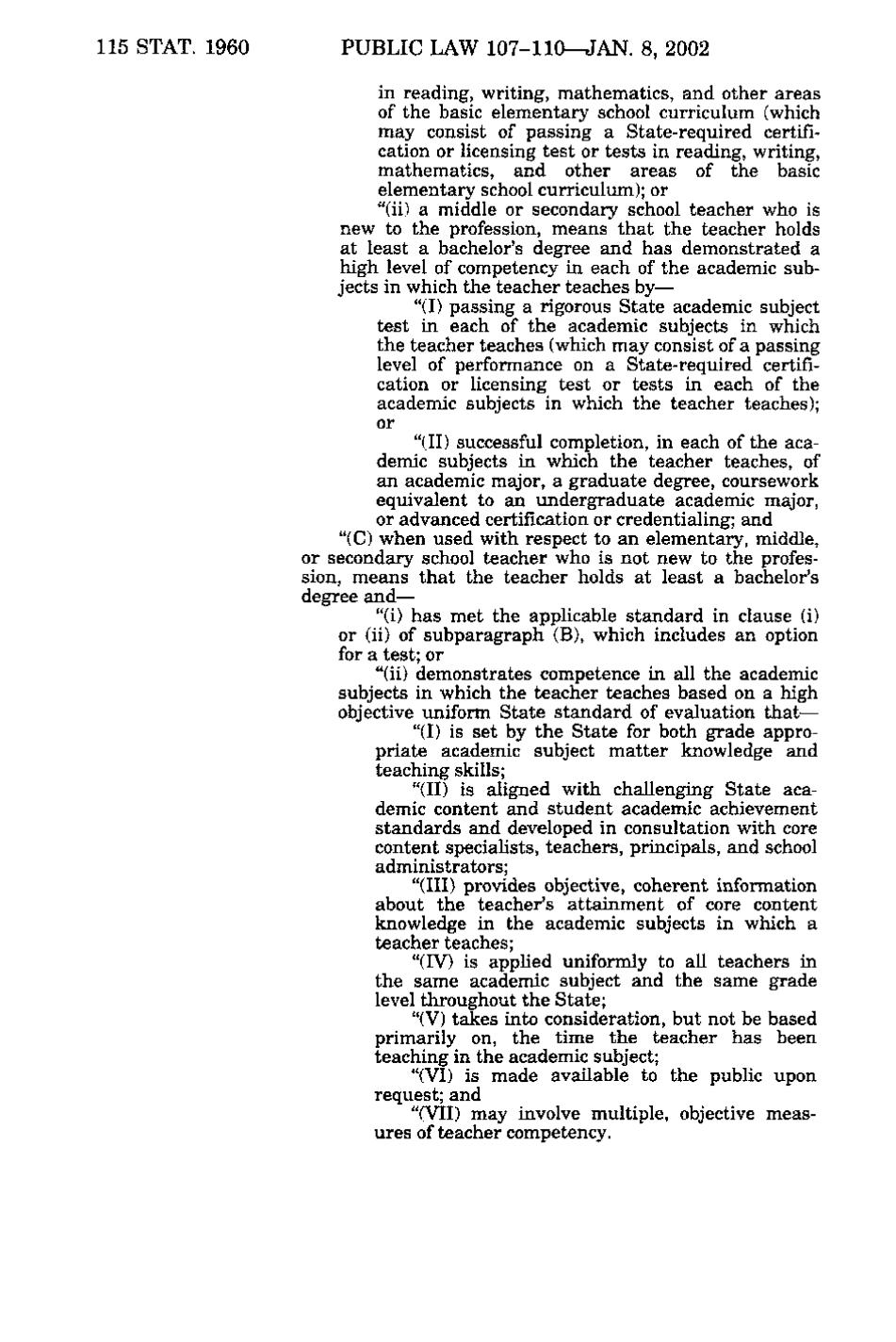115 STAT. 1960 PUBLIC LAW 107-llO^JAN. 8, 2002 in reading, writing, mathematics, and other areas of the basic elementary school curriculum (which may consist of passing a State-required certification or licensing test or tests in reading, writing, mathematics, and other areas of the basic elementary school curriculum); or "(ii) a middle or secondary school teacher who is new to the profession, means that the teacher holds at least a bachelor's degree and has demonstrated a high level of competency in each of the academic subjects in which the teacher teaches by— "(I) passing a rigorous State academic subject test in each of the academic subjects in which the teacher teaches (which may consist of a passing level of performance on a State-required certification or licensing test or tests in each of the academic subjects in which the teacher teaches); or "(II) successful completion, in each of the academic subjects in which the teacher teaches, of an academic major, a graduate degree, coursework equivalent to an undergraduate academic major, or advanced certification or credentialing; and "(C) when used with respect to an elementary, middle, or secondary school teacher who is not new to the profession, means that the teacher holds at least a bachelor's degree and— "(i) has met the applicable standard in clause (i) or (ii) of subparagraph (B), which includes an option for a test; or "(ii) demonstrates competence in all the academic subjects in which the teacher teaches based on a high objective uniform State standard of evaluation that— "(I) is set by the State for both grade appropriate academic subject matter knowledge and teaching skills; "(II) is aligned with challenging State academic content and student academic achievement standards and developed in consultation with core content specialists, teachers, principals, and school administrators; "(III) provides objective, coherent information about the teacher's attainment of core content knowledge in the academic subjects in which a teacher teaches; "(IV) is applied uniformly to all teachers in the same academic subject and the same grade level throughout the State; "(V) takes into consideration, but not be based primarily on, the time the teacher has been teaching in the academic subject; "(VI) is made available to the public upon request; and "(VII) may involve multiple, objective measures of teacher competency.
�
